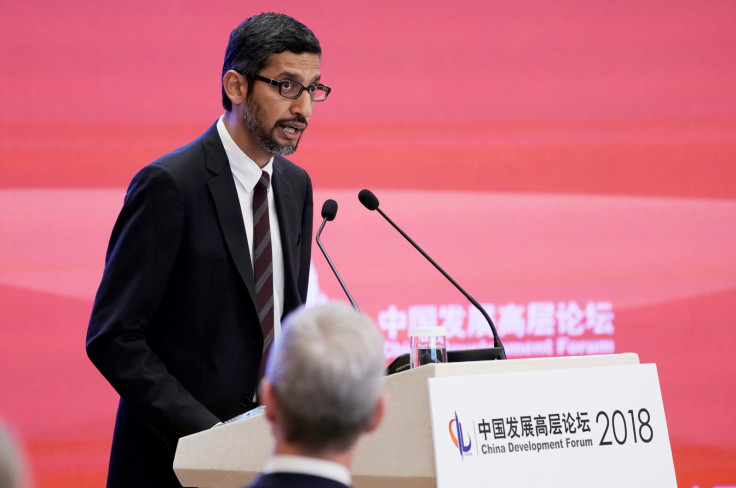China not tempted by Google's censored search engine
Chinese state-run media outlet said the world's most populous country had no plans to allow for a return of the Alphabet company.
After a report claimed Wednesday that Google was looking to get back into China with a censored version of its search engine, a Chinese state-run media outlet said Thursday the Asian country had no plans to allow for a return of the Alphabet company. The report by China Securities Daily said it was based on information received from "relevant departments," Reuters reported.
Google had first launched its search engine in China in 2006, where a censored version — in compliance with Chinese government policies — filtered out terms and search results the government wanted blacklisted. Facing backlash in the U.S. for its stance, Google withdrew its services from China in March 2010, citing its disagreement with the Chinese government's efforts to stifle free speech.
However, China is the world's most populous country (though India is poised to overtake it in the next decade or two) and has an internet user base of about 750 million people — over twice that of the entire United States population and about the same number of people that live in Europe. And that makes it a very attractive market to the internet company that is almost synonymous with search engines in most of the world.

According to a report by the Intercept, published Wednesday, Google CEO Sundar Pichai went to China in December 2017, where he met with a senior government official named Wang Huning, a foreign policy advisor to Chinese President Xi Jinping. Google announced a few days later it was opening a new research center in Beijing for artificial intelligence, and has rolled out two small apps — one for file management and the other a game — for Chinese users since.
Pichai, who took over the reins at Google in October 2015, has made his intention to return to China publicly known over two years ago, during a speech in June 2016, when he said: "We want to be in China serving Chinese users."
The Intercept report cited internal Google documents — marked "Google confidential" — that discuss a project named "Dragonfly" that has been kept secret from most of the company's 88,000 employees. The project has reportedly been worked on since spring 2017, and is designed to launch a neutered version of the search engine's app "in China that will blacklist websites and search terms about human rights, democracy, religion, and peaceful protest," the report said.
The custom app that has been designed for this purpose has at least two different versions, called "Maotai" and "Longfei," and has already been shown to Chinese officials. Pending approval from China's regulators — it would require adherence to China's Great Firewall — and Google's own belief that its offering is better than Chinese search engine Baidu, the app could be released in six to nine months. The automatic search filters would apply to image and others searches as well.
However, the ongoing trade spat between the U.S. and China would also affect any plans Google may have to make a return to China. The company is also facing backlash in the U.S. again since the report Wednesday.
© Copyright IBTimes 2025. All rights reserved.





















